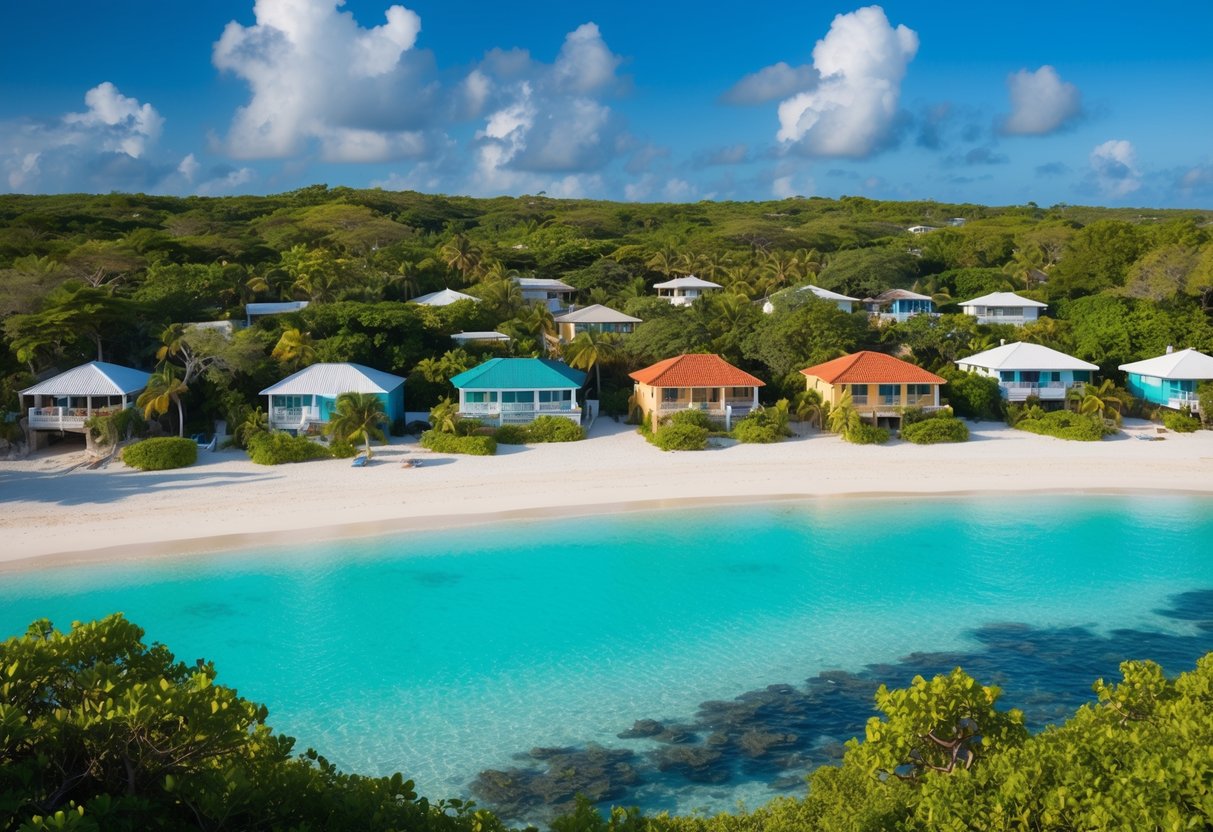
Local Flavors and Culinary Delights
Exploring the Caribbean offers a unique opportunity to dive into rich cuisines. In Curacao, one can savor dishes that showcase the island’s history and unique blend of cultures. Jamaica, on the other hand, captivates visitors with its iconic jerk spices, turning simple ingredients into unforgettable meals. Both islands provide gastronomic adventures that delight the senses.
Curacao’s Authentic Cuisine
Curacao’s culinary scene is a vibrant reflection of its multicultural heritage. The island offers enticing dishes like “keshi yena,” a stuffed cheese dish brimming with spiced meats and vegetables. Influences from Dutch, African, and Latin American cuisines create a fusion that is uniquely Curacaoan. Visitors often enjoy “stoba,” a hearty stew that blends local spices and ingredients, offering a delicious taste of island life.
Seafood lovers will appreciate the freshest catches, often served in beachside shacks where locals gather. The variety of seafood prepared with traditional recipes, such as “yuana” or iguana stew, fascinates adventurous eaters. Local markets also display an array of tropical fruits, which are often incorporated into desserts and drinks, providing a refreshing complement to the flavorful meals.
Jamaica’s Jerk Spices
Jamaica is renowned for its jerk cuisine, where spices such as allspice and Scotch bonnet peppers create a fiery and aromatic profile. The technique involves marinating meats, traditionally chicken or pork, with these spices and then slow-cooking them over pimento wood for a distinctive smoky flavor. This method delivers a depth of taste that’s integral to Jamaica’s culinary identity.
Venture into the heart of Jamaica’s bustling street food scene to find some of the best jerk offerings. Each vendor crafts their marinade recipe, often handed down through generations. The result is a spicy, savory delight that draws both locals and tourists. Accompaniments like “festival” bread or “breadfruit” add texture and richness to the meal. Whether enjoyed at a roadside stand or a beachfront café, jerk cuisine showcases Jamaica’s vibrant food culture.
Sustainable Travel and Conservation
In the Caribbean, attention is increasingly being paid to sustainable tourism and conservation. St. Lucia and Bonaire are key locations where ecotourism efforts aim to preserve natural beauty while benefiting local communities.
Eco-Resorts in St. Lucia
St. Lucia is home to several eco-resorts that balance luxury with sustainability. These resorts often use locally sourced materials in their construction and rely on renewable energy sources. Many initiatives focus on water conservation and waste reduction, helping to minimize the environmental footprint. The resorts often offer activities such as guided nature walks and snorkeling tours, enabling guests to connect with the island’s unique ecosystem without causing harm.
Local communities benefit through employment opportunities and cultural exchanges. By prioritizing environmentally responsible practices, these eco-resorts support both the economy and the island’s natural habitats. This form of sustainable tourism is gaining popularity among travelers seeking an ethical travel experience.
Conservation Efforts in Bonaire
Bonaire has long been recognized for its commitment to ecological preservation. The island’s marine parks and nature reserves, including Washington Slagbaai National Park, play a pivotal role in maintaining biodiversity. Locally led conservation projects focus on protecting coral reefs and monitoring wildlife populations.
Research and monitoring programs provide crucial data for developing effective conservation strategies. Bonaire’s success in balancing tourism with conservation is largely due to community involvement and strong environmental policies. Visitors are encouraged to partake in ecotourism activities that promote awareness and respect for the island’s natural beauty. By investing in these efforts, Bonaire ensures that future generations will continue to enjoy its unique landscapes and wildlife.
Navigating the Caribbean Seas
Navigating the Caribbean offers both adventure and tranquility. From the allure of the British Virgin Islands to the pristine beauty of Los Roques, each destination promises unique experiences enhanced by the region’s vibrant marine life and scenic landscapes.
Sailing the British Virgin Islands
The British Virgin Islands boast some of the best sailing conditions in the Caribbean. The calm and protected waters, combined with a network of islands, make it ideal for seasoned sailors and novices alike. Many choose to sail around Tortola and Virgin Gorda, where the winds create a perfect environment for exploration.
Numerous charters offer varied packages, including crewed and bareboat options. Nautical enthusiasts should not miss the chance to anchor at The Baths on Virgin Gorda, known for its massive granite boulders and clear waters. Many visitors also enjoy the serene anchorages at Jost Van Dyke. Here, the famous beach bars provide a welcoming respite after a day on the water.